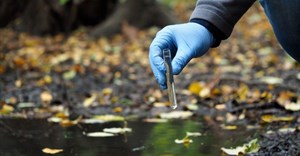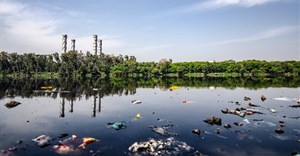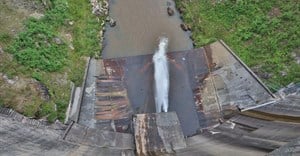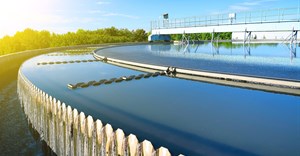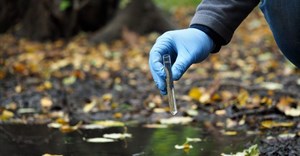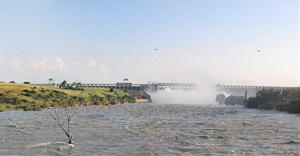Having clean water is a human right: Maintaining clean environment is a human responsibility

This year’s World Water Day theme is “Water for All”. The message is about encouraging people and businesses to be aware and take action against threats to our environment which in many cases are caused by our unsustainable land activities, such as deforestation, river pollution through irresponsible mining, excessive use of pesticides, fertilisers, dilapidating urban waste water purification infrastructure and many more. If we all agree that the extensive water pollution we experience is driven by us (humans), it is therefore possible that we can collectively (humans) slow down or even reverse the environmental degradation. It is possible and it is in our hands as responsible citizens.
The scarcity of water, and indeed its value, has been proven to be worth even more than fuel per litre: no water, no life. Citizens, business and government have an obligation to carefully manage this indispensable liquid called water in a unique way as the country tries to achieve aspirations carried in SDG 2030, Africa Agenda 2063 and indeed our own NDP 2030. Our water resources continue to be under serious pressure from ever increasing levels of water pollution, from mountainous strategic water resources areas/wetlands, through rivers to estuaries, including ground water. In fact, research reports points to water crisis conditions.
Threat to food security
Tap water in South Africa used to be rated amongst the best in the world, but that has since changed. About 61% of South Africa’s land is moderate to highly degraded, posing serious threat to food security and facilitates soil erosion leading to dam siltation, rendering them useless infrastructure. Water resources and land are intricately connected, what happens on land is mirrored in our rivers, dams, wetlands and estuaries. Businesses such as agriculture, industries and tourism depend on assurance of water supply of acceptable quantity and quality for operations and production.
It is important to understand that healthy natural ecosystems and landscape (often referred to as ecological infrastructure) can assist rivers to self-purify, which is a free service offered to beneficiaries. Wetlands or natural sponges/kidneys are well known for purifying water that flows through them thereby improving water quality and sustained long-term flows downstream, even during droughts. However, self-purification ability depends on the water resource health status vs consistency and concentration of pollutants delivered. With increased pollution, the self-purification ability decreases, hence costly purification measures must kick in to sustain business.
Delaying the impacts of drought
Communities, particularly those in rural areas where the majority of people rely on untreated raw water for livelihood, incur costs of poor water quality. Well vegetated landscape (catchment) allows rainfall to infiltrate resulting in recharge of ground water. This water continues to recharge wetlands and rivers, thereby delaying the impacts of drought as the rivers begin to lose water and dams dry up. Deforestation, especially where communities harvest trees for firewood, causes serious soil erosion and siltation. All these negative forces affect the quantity and quality of water directly affecting business and job creation.
The Water Research Commission (WRC) through innovation and research is generating knowledge in support of policy and communities, as well as business towards meeting the outlined growth frameworks. Various value add innovations are being explored within the green village and economy lighthouse (flagship) programme. Research has already demonstrated that rehabilitating a 125ha wetland at R1.7m can purify mining polluted water and save on purification costs thereby adding more than R130m to revenue. It is for this reason that businesses, such as insurance, industries, need to look at investing in environment as a risk mitigation measure to their businesses and partner with government and society in managing the environment.
Technical monitoring tools
Recently WRC, in partnership with SANBI/CSIR, produced a revised map of South African wetlands (NWM:5) which greatly improved accuracy by more than 90%. This accuracy is key in monitoring wetlands and authorising sustainable developments in their vicinity so that they can continue providing the ecosystem service they are known for. A wetlands national monitoring programme will generate improved reporting on the status of wetlands for the benefit of the country and internationally, such as the Ramsar Convention etc. These technical monitoring tools tend to be costly and that deters citizens from voluntarily participating in water resources management, hence WRC re-worked them (including for rivers, estuaries, and even human health) in partnership with Ground-Truth and WESSA to produce 10 community user-friendly water quality monitoring tools or a Tool-box report launched on 20 March.
The tools will be demonstrated in Tshwane rivers and wetlands to more than 80 participants from around the country. Amongst them will be the delegation from the Embassy of Sweden. This is regarded as a key support to citizen science who are providing a bottom up approach to monitoring of water resources. This is critical as they are the first to receive and feel the impact of poor water quality and quantity for livelihood. Since the launch of the Tool-Box, there is no reason for any citizen to watch and do nothing when their human rights to a healthy environment are being tempered with.
Citizens in partnership with business must adopt and monitor stretches of wetlands, rivers, dams, and estuaries closer to their residential places using methods developed by the WRC. We must act now before it is too late to prevent further degradation of our water resources.










